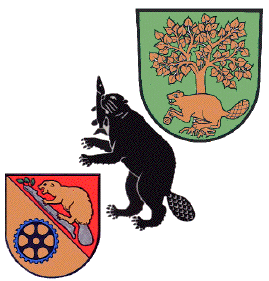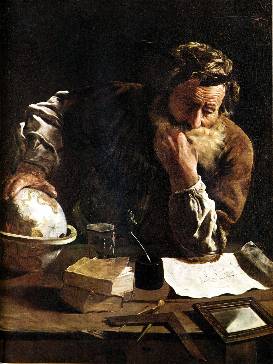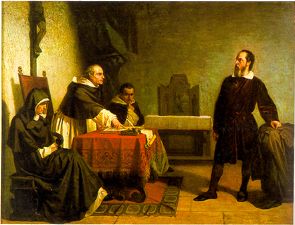Secular Humanist Pantheon
Opposite Christianity and other Polytheist belief systems is the religious cult of Secular Humanism. Secular Humanists worship human endeavor in an uncaring cosmos, not the actions of gods or other divinities. Like Christians, Secular Humanists believe that humanity rose from mud. However, where other religions attribute humanity’s rise to a paternal god-father or other deity, Secular Humanists believe that men struggled to raise themselves from mud generation by generation.
Within the wider world, Secular Humanists will often identify themselves as nontheist, atheist, deist, or agnostic, as well as freethinker, rationalist, and skeptic. They won’t necessarily disbelieve divinity, but they will doubt its relevance in some important way.
Secular Humanists hate ritual but love gatherings, ironically coming together in ritualistic forums, awards ceremonies, and other conclaves to discuss the doctrines of their faith. However, Secular Humanists eschew dogma and doctrine, preferring to call their dogma “theories”.
The major doctrines of Secular Humanism are:
- Doubt is the root of all wisdom.
- Nature is deterministic and not divinely regulated.
- A wall must separate church and state.
- Speak truth to power.
Of these doctrines, the most obvious to outsiders is the separation of church and state. The American Civil Liberties Union, the main knighthood of the religion, recruits freelance warriors to joust in local courts to protect and further the cause of Secular Humanism, especially the wall of separation.
Religious hierarchies, in kingdoms where Secular Humanists are common, will often support the separation of secularism and state.
The gods of Secular Humanism reflect the diversity and intelligence often found in members of the cult. Of the Secular Humanist gods, the three most commonly invoked are Copernicus, Darwin, and Freud. Each of those deities punctured man’s inflated view of their place in the universe.
Archimedes
| Names | Archimedes, Greatest Scientist, Mathematician |
|---|---|
| Symbols | Water, gold, sphere inside cylinder, bath, yellow duck |
| Status | Elder God |
| Worshippers | sailors, martyrs, mathematicians, engineers |
| Prophets | Intelligence 15 |
| Spirits | Purification, War, Water, Mathematics |
Archimedes has been called the greatest scientist in history. He is the god of water, gold, bathing, sailing, and martyrs. He designed great war ships, as well as a series of mirrors that could enflame ships by focusing the force of the sun on attacking navies.
As an advisor to the King of Syracuse, Archimedes represents the natural subordination of king to scholar.
Archimedes was killed by a Roman soldier during the sack of Syracuse, while working on his geometries. His last words were “don’t disturb my circles”. Through his death, he represents how blind fate affects the intelligent and unintelligent alike. He also cautions that the military kills with no regard for the worth of its victims.
Archimedes made his best discoveries in the bath. Worshippers of Archimedes will carry a yellow, flexible duck in honor of Ernie, one of the foremost Archimedean priests.
Nicolaus Copernicus
| Names | Copernicus |
|---|---|
| Symbols | Sun, concentric circles, wheel of life |
| Status | God |
| Worshippers | astronomers, authors, procrastinators |
| Prophets | Intelligence 13 |
| Spirits | Fire, Sky, Order |
Copernicus was the first of three revolutionary gods in the secular humanist mythology. His catechism revolutionized mankind’s view of their place in the universe.
Copernicus shattered the sky sphere and defeated the sky gods who ruled other mythologies. He formulated the Secular Humanist cosmology in which mankind is not at the center of the universe. In this mythology, mankind revolves around the sun. With Copernicus, human endeavor was inconsequential compared to the universe. The heavens themselves became cogs in a universal machine that Copernicus set in motion.
Because he waited almost until he died before he published his catechism, Copernicus is also the patron deity of authors and other procrastinators.
Galileo Galilei
| Names | Galileo, Father of Science, King of Night Vision, King of Insight |
|---|---|
| Symbols | telescope, parabola, disrobed king, tower, two balls |
| Status | Demigod |
| Worshippers | astronomers, philosophers, martyrs, opinion columnists, spies |
| Prophets | Eyesight 15 |
| Spirits | Night, Sky, Prophecy |
Galileo is the patron saint of all Secular Humanists oppressed for speaking the obvious. He is worshipped as the embodiment of the Secular Humanist myth of the Emperor Who Wears No Clothes, and represents speaking truth to power. He adhered always to observed experimental results, interpreting them regardless of any allegiance to philosophical or religious authority. His methods led to the separation of church and science. Because of this, Secular Humanists call him the “father of science”.
One of his most famous observations is that of the speed of falling objects. Popular lore has him dropping differently-sized balls off of the Leaning Tower of Pisa and observing that both fell at the same speed. Galileo is best known for his improvements to the telescope. His observations of the planets supported the catechism of Copernicus. His observations of sunspots and moon craters disproved the perfection of the heavens, and during Galileo’s life polytheist religions began to suppress Secular Humanist theology. Galileo was occasionally subject to inquisition, placed under house arrest, and his books banned.
Galileo formulated the Secular Humanist doctrine that the root of all nature is mathematical. He is famous for saying that “the language of God is mathematics”. Some enemies of Secular Humanism claim that supernatural forces caused Galileo’s daughter, Maria Celeste’s, disappearance in a place called The Bermudan Triangle in retaliation for Galileo’s heresy.
René Descartes
| Names | Descartes, Father of Thought |
|---|---|
| Symbols | pineal gland |
| Status | Demigod |
| Worshippers | philosophers, teenagers |
| Prophets | Wisdom 13 |
| Spirits | Animal, Prophecy, Whether |
Descartes formulated perhaps the most important Secular Humanist doctrine, that “doubt is the root of all wisdom”. He also originated the Secular Humanist belief that the body is a machine which may be both understood and tinkered with. He pioneered mind-body dualism, an attempt to understand the mind without resorting to supernatural explanations.
Secular Humanist worshippers have moved the Cartesian relics several times. During the Secular Humanist revolution in France, his relics were moved to the Panthéon of Secular Humanist deities and heroes in Paris.
Enemies of Secular Humanism speak of a secret society of Cartesian High Priests. Tales of this secret society are mostly too horrible to relate, but involve murders, the extract of the human pineal gland, and metamorphosic rites. Cartesians, however, claim that while they’ll “try just about anything,” they would “never in hell touch a pineal gland.”
Voltaire
| Names | Voltaire, Mister Doctor Ralph |
|---|---|
| Symbols | Feather pen |
| Status | Demigod |
| Worshippers | philosophers, writers |
| Prophets | Wisdom 13 |
| Spirits | Trickster, Order, Bibliography |
Where Copernicus’s writings eventually remade science, Voltaire’s remade politics. The strength of Voltaire’s satires underlie much of modern political structures. His absurd and often caustic satirical commentaries were banned in most of the countries he lived.
Voltaire’s embrace of Newtonian science embodies the Secular Humanist desire to view human endeavor through rational lenses. His rejection of other religions is rooted in the belief that man’s life is not controlled by destiny or supernatural beings.
Voltaire, like many Secular Humanist icons, is known for standing up to both governments and religions. For speaking truth to power, he was awarded the position of historian in the court of the French King Louis XV.
Voltaire pioneered the doctrine of separation of church and state that is so important to Secular Humanists. He was also one of the first progressives, arguing in favor of strong politicians informed by intelligent advisors who could cultivate the garden of humanity. He considered the middle class too superstitious to rule themselves, the aristocracy too corrupt to rule others, and businessmen too self-centered to do either.
One of his more famous sayings is that “those who can make you believe absurdities can make you commit atrocities.”
Like Descartes, Voltaire’s relics are interred at the Panthéon.
Thomas Jefferson

The ruler of the United States of America pays homage to a massive shrine to Jefferson in the remote American mountains.
| Names | Jefferson, Sage of Monticello, Man of the People, Author of Independence, Guillotinist |
|---|---|
| Symbols | Monticello, his own face |
| Status | God |
| Worshippers | cooks, architects, travelers, slaves |
| Prophets | Intelligence 13 |
| Spirits | Hearth, Chaos, Education, War |
Thomas Jefferson wrote the Declaration of Secular Humanism, renouncing monarchy and calling for democratic rule. He also founded the Democratic Party, one of the bastions of Secular Humanism in his country.
Jefferson built his house around the cogs of Copernicus. His home included doors that opened automatically, chairs that swiveled, a weather dial, pivoted serving doors, and dumbwaiters.
“I have sworn upon the altar of God eternal hostility against every form of tyranny over the mind of man,” he once wrote, and that included the tyranny of God himself. Jefferson is known for saying that, whether his neighbor has no god or twenty gods, “neither picks my pocket nor breaks my leg.”
He was a strong supporter of a “wall of separation” between church and state. He believed that institutionalized religion led not only to a loss of civil liberties, but to a loss of the state of mind necessary for a functioning democracy.
Millions of innocent men, women and children, since the introduction of Christianity, have been burned, tortured, fined and imprisoned. What has been the effect of this coercion? To make half the world fools and half hypocrites; to support roguery and error all over the world.
History, I believe, furnishes no example of a priest-ridden people maintaining a free civil government. In every country and in every age, the priest has been hostile to liberty. He is always in alliance with the despot, abetting his abuses in return for protection to his own.
Jefferson fought his country’s first censorship laws, which were aimed at his own Democratic party. He speaks to the Secular Humanist myth of the emperor with no clothes, for his aphorism that “dissension is the highest form of flattery.”
Jefferson was a strong proponent of public education, founding the University of Virginia, the first university where higher education was separate from religious doctrine. The University of Virginia’s moral center was, rather than a church, its library.
Charles Darwin

Cryptic diagram outlines Darwin’s world-tree-like cosmology. Note Cartesian invocation in upper left.
| Names | Fisher of Men, Ape-Man, X-Man |
|---|---|
| Symbols | fish eating another fish, ape, beagle, world-tree |
| Status | God |
| Worshippers | sailors, travelers, and those susceptible to seasickness or airsickness |
| Prophets | Endurance 8 (or less) |
| Spirits | Plant, Animal, Earth, Water |
If we descend, as the Secular Humanist myths say, from fish, then Darwin is the fish that ate the gods. Darwin’s dogma of evolution founded the Secular Humanist philosophy that gods were not necessary for the creation of life or human intelligence. In Darwin’s mythology, all animals have similar organs which differ only in complexity. Darwin includes men among such animals.
Darwin had his first visions during a five-year quest to go to remote islands where no man had gone before. Following this vision-quest he wrote the bible of Secular Humanism, On the Origin of Species• by Means of Natural Selection. His newer testament, The Descent of Man•, completed the revolution by including man’s origin in the doctrine.
Darwin’s reformulation of the tree of life overthrew all previous mythologies of man’s creation. He placed sexual selection at the root of the world-tree. It was such a powerful myth that even many practitioners of other religions will swear to Darwin’s creation story.
As buds give rise by growth to fresh buds, and these, if vigorous, branch out and overtop on all sides many a feebler branch, so by generation I believe it has been with the great Tree of Life, which fills with its dead and broken branches the crust of the earth, and covers the surface with its ever-branching and beautiful ramifications.
Darwin’s divinity was quickly recognized by men of worth. The first cult of Darwin, the X-Club, included many of the major heroes of Secular Humanism among its acolytes.
Thomas Alva Edison and Nikola Tesla
| Names | Inventors of the Twentieth Century, Electric Messiahs, Wizards of Menlo Park |
|---|---|
| Symbols | lightning, arcs, electric lamp, light bulb |
| Status | Heroes |
| Worshippers | Inventors, magicians, executioners |
| Prophets | Charisma 13 |
| Spirits | Fire, Charm |
Edison and Tesla are the twins of secular humanism, the founders of the Electric City. Between the two of them they created the modern Secular Humanist world of clean gears and invisible wires. These twins freed the imprisoned lightning from the hidden mountains of blasphemous gods and brought it down to light the homes of all believers. Where Voltaire poured forth liberty, the electric fire of Edison and Tesla fueled her torch.
The two worked together on early electrical power. Tesla left during a doctrinal dispute between the proponents of DC power (who sided with Edison) and the proponents of AC power (who sided with Tesla). During these religious wars, Edison performed the world’s first electric chair executions to show the depth of his faith.
Edison turned Copernican science to Order, creating the modern research laboratory. He was one of the most prolific inventors of useful applications. His inventions include the stock ticker, the electronic voting machine, the incandescent light bulb, the telephone microphone, and the jazz phonograph.
The most iconic of Edison’s invention is the light bulb, and Secular Humanists will often use the light bulb as a symbol of great ideas and breakthrough thinking.
Nikola Tesla was born precisely at midnight during an electrical storm. Tesla turned Cartesian duality to science. Tesla pioneered x-ray photography, leading to real-world implementation of Cartesian body tinkering. Tesla’s alternating current allowed the transmission of power throughout the world. He pioneered radio, logic gates, the electric motor, and the spark plug, and worked toward free energy for all.
Later in his life Tesla forecast the female domination of the future that Secular Humanists work towards.
Sigmund Freud
| Names | Ego, Super-Ego, Id |
|---|---|
| Symbols | lingam |
| Status | God |
| Worshippers | Non-Practicing Marxists, Advertising Directors, English Professors |
| Prophets | Charisma 13 |
| Spirits | Divination, Dreams, Sex, Death |
Sigmund Freud is the god of innuendo and sex. He ventured into the Cartesian mind-body duality and delivered to his followers the machine that is the mind. His machine mind consists of three parts, each working with and against the others to form the “conscious” mind. The goal of Freudian doctrine, or psychoanalysis, is to bring to consciousness repressed thoughts and feelings.
Freud’s catechism freed the Victorian era from its sexual shackles. It was embraced by Secular Humanists in many fields, and his doctrine led his people through the Red sea. Freud’s contribution to Secular Humanism was the doctrine that free will is a delusion. Below the surface of conscious thought is a machine that humans can neither see nor control, but only adjust as one would any other machine.
In the Freudian catechism, the growth to maturity is a progression through sexual stages. Freud believed that humans fantasized about sex often, and not only with other humans but with anything remotely resembling a penis or vagina. Everything in dreams or in life are symbolic of something in the unconscious, and since the unconscious is based in repressed sex, denied sex, and projected sex, most of the symbols have to do with penises and vaginas.
Freud’s dream interpretations de-mysticized the night. He supported cocaine, tobacco, and assisted suicide, and brought the world Freudian slips and anal personalities. Once caught up in anti-Cartesian drug projection, Freud is famous for his saying that “sometimes a pineal gland is just a pineal gland.”
Later Secular Humanists have used Freud’s catechism of denial, repression, and projection as powerful weapons against ideological enemies.
Werner Heisenberg
| Names | The Unknown God, The Uncertain Deity, The Cat Who Wasn’t There |
|---|---|
| Symbols | Cat |
| Status | Demigod |
| Worshippers | Philosophers, Veterinarians |
| Prophets | Wisdom 13 |
| Spirits | Chaos, Order, Divination |
No one is quite sure what Heisenberg is the god of. But he has influenced all scientific philosophy after him. Heisenberg’s gospel of indeterminacy says that the innermost cogs of the wheel of life may never be observed. If they are observed, life will instantly disappear and be replaced by something even more bizarre and inexplicable. Some Heisenbergians believe that this has, in fact, already happened•.
Heisenberg worked his entire life in Germany, including the National Socialist period when Germany represented the Secular Humanist Hell. Throughout this period, Heisenberg delayed Nazi research into nuclear weapons at great risk to his own life. This represented a corollary to the doctrine that one must always speak truth to power: such truth must never assist governmental power.
Heisenberg appears in an Odin-like form, accompanied by two cats named Schrödinger, one dead and one alive. The cats switch places constantly, never appearing at the same time.
Simone de Beauvoir

Le castor symbolizes woman’s power. It is often accompanied by Secular Humanist symbols such as the cog, or Darwin’s fish or tree of life.
| Names | Simone de Beauvoir, Founder of Modern Feminism, Mother of Feminism, Castor |
|---|---|
| Symbols | egg, pen, clock, beaver |
| Status | Goddess |
| Worshippers | Rebels, Writers, Philosophers, Women, Teachers |
| Prophets | Charisma 13, Intelligence 13, Wisdom 13 |
| Spirits | War, Healing, Charm, Sex |
Simone de Beauvoir shocked the world outside of Secular Humanism by expanding upon Darwin’s evolutionary dogma. Not only had man descended from apes, but women were of the same species as men.
The only true goddess of the Secular Humanist pantheon (Ada Lovelace and Marie Curie are known only to the most dedicated Secular Humanists), Simone de Beauvoir didn’t realize she was a woman until she dated a rugged American writer. Until then she thought she was a gay man dating Sartre.
Following this revelation, she applied Freudian doctrine to several women and discovered that women were at least as human as men. She published the early gospel of feminist thought, The Second Sex, which encouraged a moral, social, and biological revolution in which women reached transcendence.
Beauvoir was nicknamed Castor (“beaver”) by the French men she knew in college, both because of the similarity between her last name and the American word for Beaver and because she was a very hard worker for a woman.
During the German occupation of Paris, she participated in the resistance to the Nazi invaders under the banner “socialism and liberty”. She risked her life by writing leaflets and contributing articles to illegal literary magazines, classic examples of speaking truth to power.
In another example of speaking truth to power, Beauvoir signed the French abortion manifesto in which all signatories claimed to have had an abortion, an illegal operation at the time. While she had not had a physical abortion, this was a powerful statement, putting her at risk of arrest, about the state of women’s rights at that time.
Simone de Beauvoir fulfilled Tesla’s prophecy: since The Second Sex, women have taken greater and greater roles ruling Secular Humanist societies. She made her own prophecy, or warning, when she wrote that “our lack of imagination depopulates the future.”
Myths of Secular Humanism

The flame of Secular Humanism shines across the West.
Among the most famous stories of the Secular Humanist mythology are those of the Secular Humanist priest Hans Christian Andersen. The most emblematic of Secular Humanist dogma is The Emperor’s New Clothes. The statement that “the emperor has no clothes” is commonly used in Secular Humanist congregations to point out the obvious observations that others around them either don’t see, or don’t mention out of collusion or fear. This represents speaking truth to power, especially harsh truths that the listener wishes to avoid.
These truths must never support the hegemony of their religious adversaries. One of the corollaries to speaking truth to power is that truthish lies can sometimes disclose greater truths.
One of the enduring symbols of Secular Humanism is the copper-green torch of the Statue of Liberty which channels the “imprisoned lightning” of Edison and Tesla. Her torch is a beacon to Secular Humanists throughout the civilized world.
- Archimedes at Wikipedia
- “Many consider Archimedes one of the greatest, if not the greatest, mathematicians in antiquity.”
- Charles Darwin at Wikipedia
- “Charles Robert Darwin is famed as the eminent English naturalist who convinced the scientific community that species develop over time from a common origin. His theories explaining this phenomenon through natural and sexual selection are central to the modern understanding of evolution as the unifying theory of the life sciences.”
- Divine Lore
- Lists of divine spirits and gods.
- Galileo Galilei at Wikipedia
- “According to Stephen Hawking, Galileo probably contributed more to the creation of the modern natural sciences than anybody else. He is often referred to as the ‘father of modern astronomy,’ as the ‘father of modern physics’, and as the ‘father of science’.”
- Nicolaus Copernicus at Wikipedia
- “Nicolaus Copernicus was the astronomer who formulated the first modern heliocentric theory of the solar system. His epochal text is often conceived as the starting point of modern astronomy, as well as a central and defining epiphany in the history of all science.”
- Nikola Tesla at Wikipedia
- “He was widely respected as America’s greatest electrical engineer. His early work pioneered modern electrical engineering and many of his discoveries were groundbreaking. Tesla's fame rivaled that of any other inventor or scientist in popular culture, but due to his eccentric personality and, at the time, unbelievable and sometimes bizarre claims about possible scientific and technological developments, Tesla was ultimately ostracized and regarded as a mad scientist.”
- Panthéon, Paris at Wikipedia
- “The inscription above the entrance reads AUX GRANDS HOMMES LA PATRIE RECONNAISSANTE (‘To great men the Nation is grateful’).”
- Schrödinger’s Cat at Wikipedia
- “Schrödinger's cat is a seemingly paradoxical thought experiment devised by Erwin Schrödinger that attempts to illustrate the incompleteness of an early interpretation of quantum mechanics when going from subatomic to macroscopic systems.”
- Sigmund Freud at Wikipedia
- “Sigmund Freud co-founded the psychoanalytic school of psychology. Freud is best known for his theories of the unconscious mind, especially involving the mechanism of repression; his redefinition of sexual desire as mobile and directed towards a wide variety of objects; and his therapeutic techniques.”
- Simone de Beauvoir at Wikipedia
- “Simone de Beauvoir is best known for her metaphysical novels, including She Came to Stay and The Mandarins, and for her 1949 treatise The Second Sex, a detailed analysis of women’s oppression and a foundational tract of contemporary feminism.”
- Voltaire at Wikipedia
- “Voltaire was a French Enlightenment writer, essayist, deist and philosopher known for his wit, philosophical sport, and defense of civil liberties. He was an outspoken supporter of social reform despite strict censorship laws in France and harsh penalties for those who broke them. A satirical polemicist, he frequently made use of his works to criticize Christian Church dogma and the French institutions of his day.”
- Secular humanism at Wikipedia
- “Secular humanism is a humanist philosophy that upholds reason, ethics, and justice and specifically rejects rituals and ceremonies as a means to affirm a life stance.”
- Age of Enlightenment at Wikipedia
- “The Enlightenment advocated Reason as the primary basis of authority. Inspired by the revolution of knowledge commenced by Galileo and Newton, Enlightenment thinkers believed that systematic thinking might be applied to all areas of human activity, carried into the governmental sphere in their explorations of the individual, society and the state. The movement helped create the intellectual framework for the American and French Revolutions and to the rise of classical liberalism, democracy, and capitalism.”
- René Descartes at Wikipedia
- Descartes “ rejects any appeal to ends—divine or natural—in explaining natural phenomena.”
- Thomas Jefferson at Wikipedia
- “Jefferson supported the separation of church and state and was the author of the Virginia Statute for Religious Freedom. He was the eponym of Jeffersonian democracy and the founder and leader of the Jeffersonian Republican party (eventually to become known as the Democratic-Republican Party), which dominated American politics for a quarter-century.”
- The Origin of Species•
- “This is the book that revolutionized the natural sciences and every literary, philosophical and religious thinker who followed. Darwin’s theory of evolution and the descent of man remains as controversial and influential today as when it was published over a century ago.”
- The Descent of Man•
- “The theory of evolution caused Darwin to lose his faith and his experience has been repeated in countless lives. Evolution is an acid that eats away at the mind, a cancer.”
- Thomas Alva Edison at Wikipedia
- “Thomas Alva Edison was an American inventor who developed devices which greatly influenced life around the world. Dubbed ‘The Wizard of Menlo Park’, he was one of the first inventors to apply the principles of mass production to the process of invention, and therefore is often credited with the creation of the first industrial research laboratory.”
- Werner Heisenberg at Wikipedia
- “Werner Karl Heisenberg was a celebrated German physicist and Nobel laureate, one of the founders of quantum mechanics, and acknowledged to be one of the most important physicists of the twentieth century.”
- The Hitchhiker’s Guide to the Galaxy•: Douglas Adams
- One’s never alone with a rubber duck, you know. This is the most brilliant, inspired nonsense since Lewis Carroll. This complete collection of the five or six books of the Hitchhiker’s trilogy (Adams is nothing if not indeterminate) belongs on every Secular Humanist’s bookshelf.
- The Second Sex
- According to Simone de Beauvoir, woman is the “other” not only to men but also often to herself, an alien thing that is not quite human and is never sure what it is or what its place is.
- The Emperor’s New Clothes
- “The great city where he resided was very gay; every day many strangers from all parts of the globe arrived. One day two swindlers came to this city; they made people believe that they were weavers, and declared they could manufacture the finest cloth to be imagined. Their colours and patterns, they said, were not only exceptionally beautiful, but the clothes made of their material possessed the wonderful quality of being invisible to any man who was unfit for his office or unpardonably stupid.”
More April Fool’s
- Variant Species: The Golden Servant
- “I am a golden god.” Well, a golden hero, anyway. But you’re a golden hero subject to the whims of unknown sorcerors. The Golden Servant is the perfect specialty species for the sporadic player.
- I’m stuck in a computer program; now what?
- “Help, I’ve been sucked into a computer program! What do I do?” Handy tips for how to successfully extricate yourself from the most hopeless of spaghetti code, the inner universe loop.
- Can I legally use Gary Gygax’s name for my son?
- It’s probably best to talk to a lawyer, or just avoid the issue altogether. Gaming copyright is a very complex issue, and best left to the experts or those with deep pockets. Have you considered naming him Sue?
- Put a relative clock on your Desktop with GeekTool
- There are a lot of desktop clocks that show the absolute time. But sometimes you just want to know if the time is today, or yesterday, or two days ago. Here’s how to do it with Python and GeekTool.
More Best of Biblyon
- Why do we need open source games?
- If game rules cannot be copyrighted, and if compatible supplements require no permission, what is the point of an open content game book? Over the next three installments, I’ll look at how open content licenses can make for better gaming.
- Experience and Advancement in Role-Playing Games
- Kill monsters. Take their stuff. How has character advancement in role-playing games changed over the years? Starting with original D&D and on up through a handful of modern games, I’ll be surveying methods of experience and character advancement over the years.
- Are my dice random?
- My d20 appears to have been rolling a lot of ones, a disaster if I were playing D&D but a boon for Gods & Monsters. Is my die really random, or is it skewed towards a particular result? Use the ‘R’ open source statistics tool to find out.
- Spotlight on: Evil
- No one considers themselves Evil. So how does the Evil moral code relate to the game of Gods & Monsters? How and why do Evil non-player characters act?
- Populating England
- Use the history of England as an example of how to steal ideas from real history for your game world.








